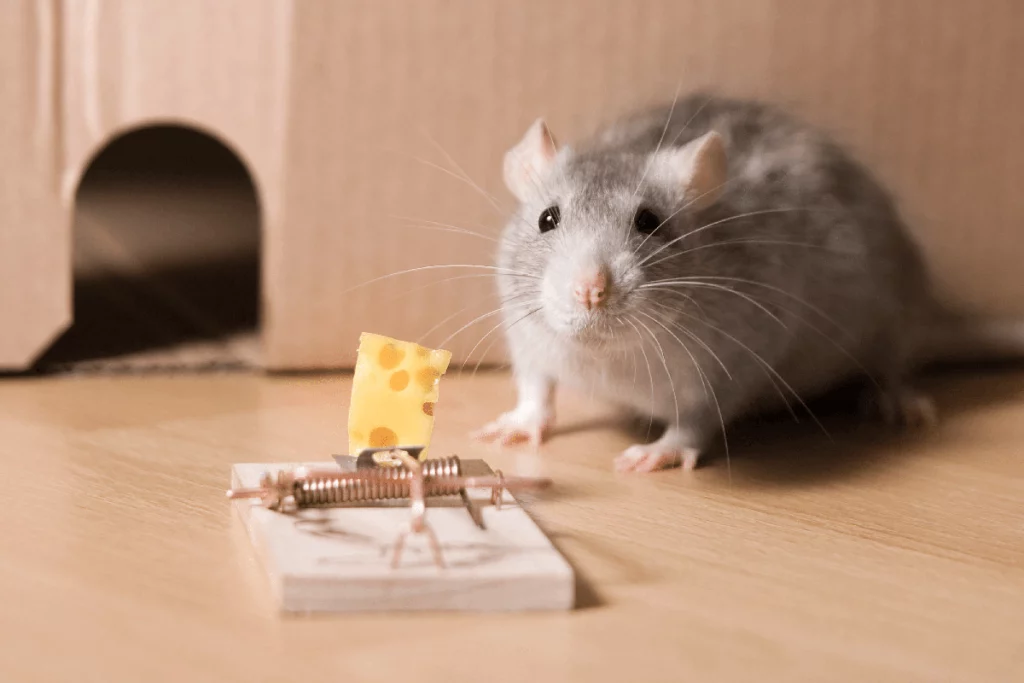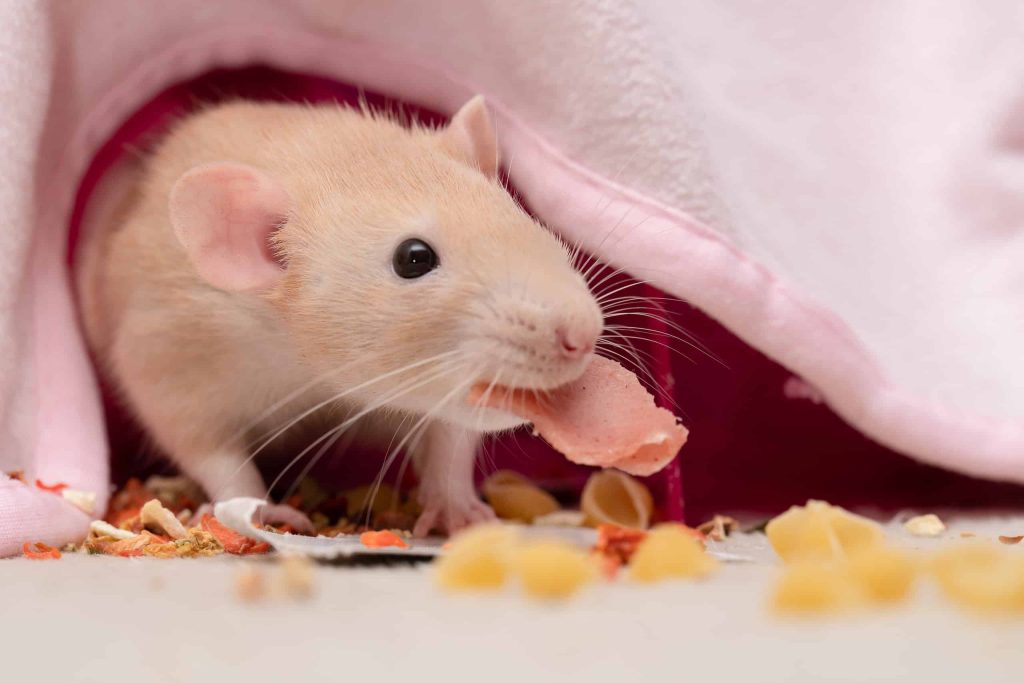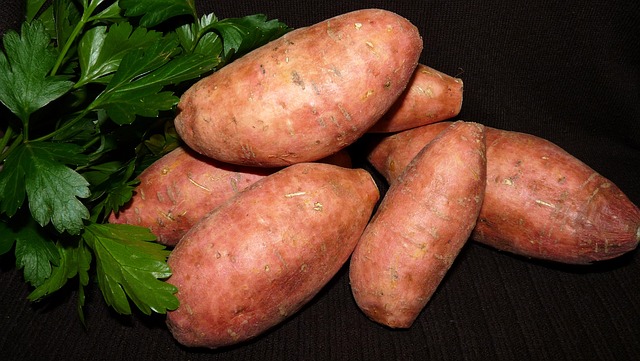No, sweet potatoes do not kill rats. They are not toxic to rats and would not cause the death of rats.
Many people worldwide enjoy sweet potatoes, a popular and nutritious root vegetable. However, there is an ongoing debate about whether sweet potatoes can kill rats.
While some individuals claim that sweet potatoes possess toxic properties that can be lethal to rats, there is limited scientific evidence to support this claim.
By gaining a better understanding of the relationship between sweet potatoes and rats, readers will be able to make more informed decisions in managing rats.
Does Sweet Potato Kill Rats?
No, sweet potatoes are not a lethal method to kill rats. While rats can consume sweet potatoes, they are not toxic enough to reliably eliminate rat populations.
It’s essential to use proper rat control methods such as traps or seek assistance from pest control professionals. Relying on sweet potatoes as a means of rat control is not effective and can lead to continued infestations.
For safe and successful rat removal, it’s recommended to follow proven pest management practices and take appropriate measures to seal entry points and remove attractants that may be drawing rats into your environment.
What are the Most Effective Homemade Rat Repellents?

Explore the significance of homemade rat repellents for a rat-free home.
Our DIY solutions are cost-effective and non-toxic to combat rat infestations, safeguarding your living space from potential health hazards and property damage.
Peppermint Oil Spray
Rats dislike the strong scent of peppermint oil. Mix water and peppermint oil that makes a rat repellent. Now keep the repellent in a spray bottle, then spray it in areas where rats are active.
Peppermint oil Spray is considered a Good homemade rat repellent because of its,
- Strong Odor Differences,
- Natural and Non-toxic,
Ammonia Solution:
Place a mixture of water and ammonia in bowls near rat-prone areas. The strong smell can deter rats. The Ammonia Solution is a good homemade because of its,
- Strong Odor Disruption,
- Long-term effectiveness,
- And having the Safety Concern.
Onion and Pepper Solution:
Blend onions and peppers with water and spray the solution around rat-infested areas. The pungent odor can repel rats.
Here’s how the Onion and pepper solution works,
- Onions and peppers have strong odors and flavors that rats find offensive.
- Rats rely heavily on their senses of smell and taste to navigate their environment and locate food. The intense scent of onions and the spiciness of peppers can disrupt their ability to identify food sources, causing confusion and making them avoid treated areas to escape the strong sensory stimulation.
Traps
Snap traps or humane traps can effectively catch rats already inside your home. Place traps in areas with signs of rat activity, such as droppings or gnaw marks.
Eucalyptus Oil Soaked Cotton Balls
Soak cotton balls in eucalyptus oil and place them in rat entry points or problem areas.
Eucalyptus oil-soaked cotton balls are thought to repel rats from kitchens due to the following reasons:
- Strong Aroma and Sensory Disruption:
- Eucalyptus oil has a potent and distinctive scent that rats find overpowering and unpleasant.
- Natural and Non-Toxic Approach:
- Eucalyptus oil is a natural essential oil derived from the eucalyptus plant. It is considered a safer and environmentally friendly alternative to chemical-based rat repellents.
- Ease of Application:
- Placing eucalyptus oil-soaked cotton balls is a simple and cost-effective method for rat prevention. Cotton balls can be positioned in pantry corners, under sinks, or in areas where rats are likely to access, making it convenient for homeowners to apply as a preventive measure.
Instant Potatoes
Rats’ digestive systems cannot process dry instant potatoes, which can swell in their stomachs and harm them when ingested.
Cayenne Pepper Spray
Mix water and cayenne pepper, then spray it around rat activity areas. The spicy scent can discourage rats.
Here’re some Important Consideration when using cayenne pepper spray for preventing the rat’s activities,
- Varied Effectiveness: The effectiveness of cayenne pepper spray can vary based on the severity of the rat infestation, individual rat preferences, and the concentration of capsaicin in the spray.
- Temporary Solution: The potency of cayenne pepper’s spiciness might lessen over time, requiring periodic reapplication for consistent results.
- Ethical Considerations: While cayenne pepper spray might repel rats through discomfort, the method raises ethical concerns about causing distress or harm to animals. Humane and safe pest control methods should be prioritized.
- Avoiding Contamination: Ensure that the cayenne pepper spray does not come into direct contact with food or food preparation surfaces to prevent potential health risks.
Bay Leaves
Place bay leaves in cupboards, pantry shelves, and other areas rats may inhabit. Rats dislike the smell of bay leaves.
However, Bay leaves are not a highly effective method for preventing rats in your house. While their strong smell may act as a mild deterrent, rats are more influenced by factors like food availability and shelter.
Using proper sanitation, sealing entry points, and employing professional pest control methods are more reliable approaches to keep rats out of your home.
Owl Feathers or Snake Shed Skin
Owl feathers or snake shed skin can naturally deter rats from your kitchen due to the predator-prey association.
Rats sense potential danger and avoid areas with signals of these predators. However, while this might provide a temporary solution, proper sanitation and sealing entry points are more effective for long-term rat control.
Remember that while these homemade methods may help deter rats, they might not provide a complete solution. To control the rats activities in your house, you must learn, how to take preventive measures.
How to Control the Rats of Your House?

Controlling rats in your house is essential to maintain a hygienic and safe living environment. Rats can spread diseases, cause property damage, and contaminate food supplies.
Implementing effective rat control methods safeguards your health and property and ensures a comfortable and pest-free home. Sure, here are some effective ways to remove rats from your house:
Seal Entry Points: Check your house for gaps, cracks, or openings that rats might use to get in. Seal these entry points with materials like steel wool or caulk to prevent rats from getting inside.
Keep Food Secure: Keep Food in airtight containers and don’t leave accessible food scraps or crumbs. Rats are attracted to food sources, so depriving them of easy meals will discourage them.
Use Rat Traps: Place snap traps or live traps in areas where rats are active, such as along walls or in corners. Bait traps with peanut butter, chocolate, or dried fruits to lure them in.
Proper Waste Management: Dispose of trash regularly in tightly sealed bins. Rats are scavengers and will be drawn to areas with easily accessible garbage.
Maintain Cleanliness: Maintain a clean, clutter-free home. Clean up spills, sweep floors, and vacuum regularly to remove possible food sources and hiding places.
Employ Natural Predators: If safe and practical, consider getting a cat as a natural rat deterrent. Cats are known for hunting rodents.
Use Commercial Baits and Poisons: You can use rat baits or poisons if needed. However, be cautious if you have pets or children, and follow the manufacturer’s instructions carefully.
Remove Clutter: Keep your living spaces organized and clutter-free. Clutter provides hiding spots for rats, so minimizing their hiding places makes your home less attractive to them.
Regular Inspection: Conduct routine inspections of your home’s interior and exterior. Identifying and addressing rat-related issues promptly can prevent infestations from becoming severe.
Trim Vegetation: Rats can use overgrown vegetation to access your home. Trim bushes and trees near your house to reduce potential entry points.
Inspect Outdoor Storage: Make sure outdoor storage areas are well-maintained and free from clutter, as rats can nest in piles of debris.
Consult Pest Control Professionals: If the rat problem continues despite your attempts, get help from pest control professionals. They can handle the issue safely and efficiently.
Remember, combining prevention and proactive measures is key to successfully removing rats from your house and preventing future infestations.
FAQs
Do sweet potatoes repel rats?
No scientific evidence suggests that sweet potatoes have repellent properties against rats. If you have a rat infestation, using proven methods such as traps and sealing entry points is better.
What food kills rats fast?
There isn’t a specific food that kills rats quickly. Using poison baits or traps designed for rats is a more effective and humane way to control rat populations.
Are sweet potatoes harmful to rats?
No, Sweet potatoes are not directly harmful to rats. Rats are omnivorous and can eat many foods, including sweet potatoes. However, relying on sweet potatoes as a means of controlling rats is not a recommended approach.
Can rats eat sweet potatoes?
Yes, rats can eat sweet potatoes. Rats eat different foods, including fruits and vegetables such as sweet potatoes. However, feeding them sweet potatoes will not effectively eliminate a rat infestation.
What is the most effective way to get rid of rats?
The most effective way to deal with a rat infestation is to implement proper sanitation practices, remove food sources, and use rat traps or hire pest control professionals.
Using rat poisons or ineffective methods like sweet potatoes can lead to unsatisfactory results.
Conclusion
Sweet potatoes do not pose a lethal threat to rats if you want to learn, “Does sweet potato kill rats?”. While not harmful, they are not a reliable rat control method. Turning to home remedies is crucial to remove rats from your house effectively.
Techniques like peppermint oil, humane traps, proper sanitation, and sealing entry points offer safer and more efficient ways to address rat infestations, ensuring a pest-free and healthier living environment.











